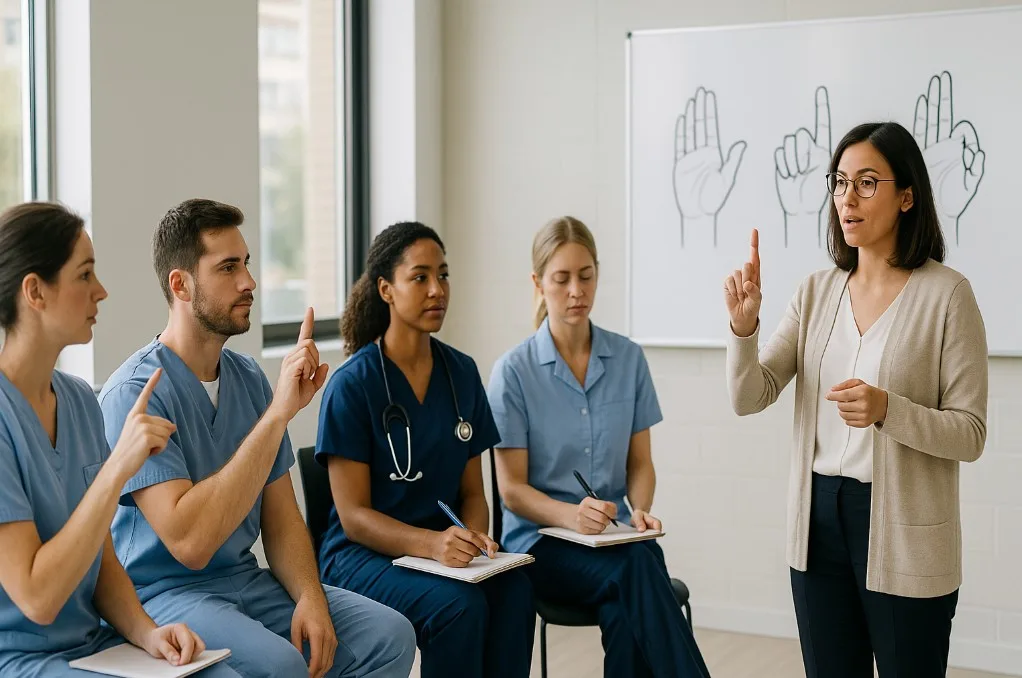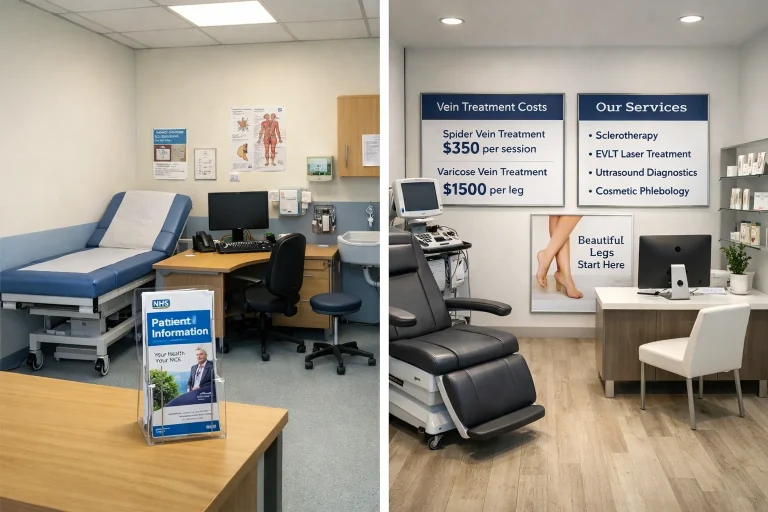Why Is the UK Supporting Sign Language Training Abroad?
How can healthcare truly serve everyone if communication barriers remain between patients and providers? This question lies at the heart of a new initiative supported by the UK Government.
Through its Embassy in Guatemala City, the UK has launched the 2025 Sign Language Course Cycle in Quetzaltenango. This programme aims to close the gap in healthcare access for people with hearing difficulties by ensuring that health professionals can communicate effectively with deaf patients.
The launch of this training highlights the UK’s commitment to equity, human rights, and inclusive public health systems not just domestically but globally. It represents a collaborative effort to improve healthcare delivery in Guatemala by building a stronger connection between patients and the professionals who care for them.
What Is the 2025 Sign Language Course Cycle?

The course is specifically designed for personnel from the Ministry of Public Health and Social Assistance (MSPAS). More than 80 healthcare professionals from hospitals and health centres in Quetzaltenango and Totonicapán are taking part in this programme. The course will run from September to December 2025, giving participants enough time to develop and refine their communication skills.
Training sessions are delivered by the Association for the Development of the Deaf of Quetzaltenango, a local organisation that understands the unique challenges faced by the deaf community.
Support from Health Poverty Action (HPA) ensures that this project is well-resourced and aligned with international public health goals. The launch event, held at the historic Pensión Bonifaz, symbolised the start of a transformative effort to build a more inclusive health system.
Why Is This Initiative Important for Public Health?
The importance of this initiative cannot be overstated. According to the 2018 Census, more than 69,000 people in Quetzaltenango live with hearing difficulties. Many of them also face poverty, social exclusion, and a lack of access to essential services. Without proper communication tools, these individuals may struggle to explain their symptoms, understand diagnoses, or follow treatment plans.
By equipping health workers with sign language skills, the training programme aims to create a healthcare environment where deaf patients feel heard, understood, and respected. Improved communication will build trust, reduce medical errors, and lead to better health outcomes. This is not simply a language course but a step toward greater social equity and patient-centred care.
How Is the Training Structured for Health Workers?
The training has been carefully designed to progress in stages, giving participants the confidence to gradually handle more complex conversations.
| Training Level | Description |
| Level 1 – Basic Communication | Focuses on everyday greetings, basic needs identification, and guiding patients around health facilities. This is the foundation for breaking down initial communication barriers. |
| Level 2 – Functional Communication | Introduces common clinical phrases, enabling staff to explain simple procedures or provide basic medical instructions. |
| Level 3 – Advanced Communication | Covers detailed conversations such as explaining diagnoses and treatment plans, and answering patient questions about care. This level is essential for building trust during more complex consultations. |
Classes will be held at key regional locations, including the Western Regional Hospital and IGSS facilities, ensuring accessibility for participants across the area. By the end of the cycle, health professionals will be better prepared to offer compassionate, effective care to deaf patients.
What Long-Term Impact Can Be Expected?

This initiative is likely to have long-lasting effects on the public health system in Guatemala. Improved communication will lead to earlier detection of illnesses, better adherence to treatment plans, and a more inclusive healthcare environment overall.
Moreover, the programme sets a precedent for other countries to follow, showing that investing in communication skills for healthcare workers can have a profound effect on community well-being.
For the UK, this effort also reflects its broader diplomatic mission to promote equality and human rights internationally. The project demonstrates that healthcare reform can be both local and global driven by collaboration between governments, NGOs, and local associations.




